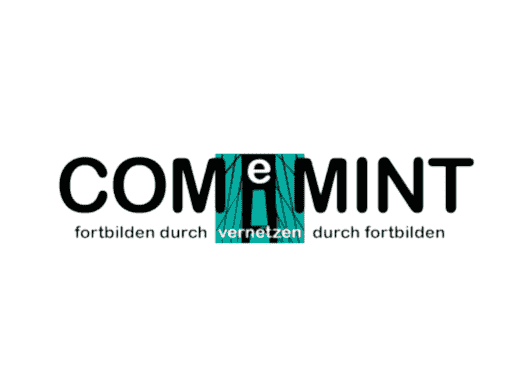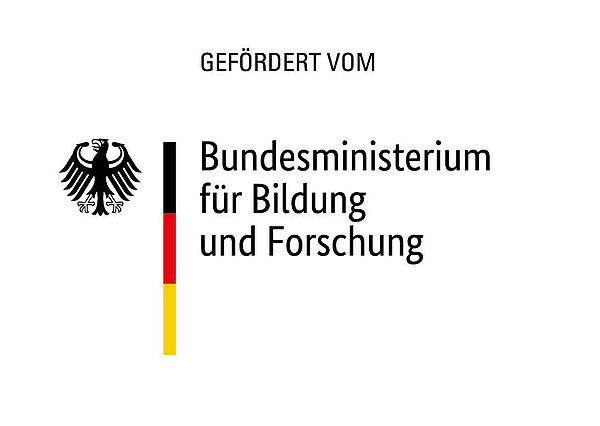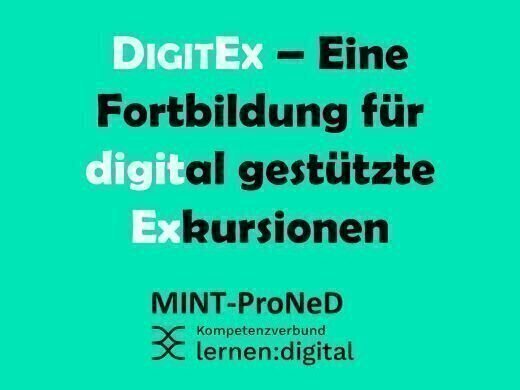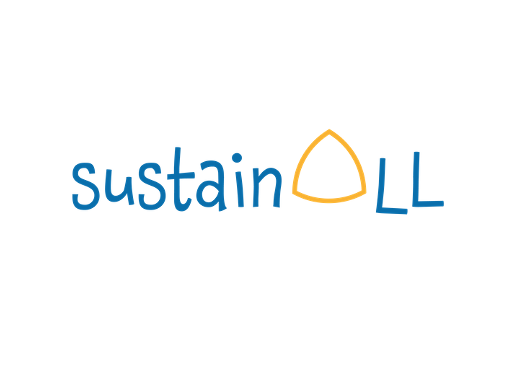
The ComeMINT Network Biology is part of the ComeMINT Network. training through connecting - connecting through training. Conditions for the success of adaptive STEM training modules in community networks. The ComeMINT Network Biology combines the didactic expertise from three locations in Germany and comprises the following scientific actors:
University of Education Ludwigsburg
- Prof. Dr. Steffen Schaal
- Dr. Rebekka Karbstein
University of Cologne
- Prof. Dr. Jörg Großschedl
- Dr. Nadine Großmann
- Lea Gussen
- Ricarda Lohrsträter
Bielefeld University
- Prof. Dr. Matthias Wilde
- Dr. Svea Kleinert
- Nicol Sperling
- Margit Offermann
- Pascal Schaldach
Basically, this training course is an online self-study unit on the potential of digital incremental scaffolds for digital and internally differentiated biology lessons. The training is divided into four basic modules and three advanced modules. The basic modules provide the foundation for optional in-depth study in one or more of the advanced modules. In addition to the online self-study unit, course participants can get in touch with each other via chat forums or synchronous (online) exchange formats.
- Basic module 1: Theoretical basics of digital scaffolds, heterogeneity and diclusion
- Basic module 2: Effectiveness of digital scaffolds
- Basic module 3: Conditions for the success of digital scaffolds
- Basic module 4: Digital implementation of incremental scaffolds with Moodle, H5P and QR learning aid
- Advanced module Knowledge Acquisition: Introduction to the competence area of Knowledge Acquisition and practical examples of implementation in experimentation
- Advanced module Communication: Introduction to the competence area of Communication and practical examples of implementation in the subject area of genetics
- Advanced module Assessment: Introduction to the competence area of Assessment and examples of application in the subject area of Ethics
- The training is intended to transfer knowledge on heterogeneity sensitization and diclusion and focus on inclusive and appropriate biology lessons that take into account the needs of all learners.
- The participating (prospective) biology teachers will be given the opportunity to develop or deepen digital skills with regard to internally differentiated biology lessons.
- In addition to professionalization in the use of digital scaffolds, the participating teachers acquire media skills in dealing with the digital applications presented.
Previous knowledge is not required.
The training starts on 15th September 2024.
With a total of 8 sessions, it has a modular structure and can be paused at any time and continued later on.
After a short introduction, the four basic modules can be completed independently in the following lessons. After each lesson, knowledge is checked by means of a self-assessment. Once the four basic modules have been completed, one or more of the advanced modules can be selected for the relevant area of competence. In this context, course participants are enabled to create their own digital teaching and learning materials. If desired, this process can be accompanied by synchronous online exchanges.
All joint projects of the STEM Competence Center focus on the research-based development of further education and training courses for teachers and multipliers with a focus on the design of digitally supported teaching in the subjects of mathematics, computer science, natural sciences, general education and technology. The ComeMINT Network Biology has implemented a concept for the professionalization of (prospective) biology teachers in the areas of digitalization and heterogeneity sensitivity.
As part of the iterative process of conceptualization of the training, the content of this training was evaluated in the form of online workshops within the BiConnected training series at Bielefeld University and subsequently adapted based on the feedback.


Funded by the European Union - NextGenerationEU and supported by the German Federal Ministry of Education and Research. The views and opinions expressed are solely those of the author and do not necessarily reflect the views of the European Union, European Commission or the Federal Ministry of Education and Research. Neither the European Union, the European Commission nor the Federal Ministry of Education and Research can be held responsible for them.”

Prof. Dr. Steffen Schaal
Professor of Biology and Biology Didactics at the Ludwigsburg University of Education.
He is involved in several projects focusing on developing a reflective teaching habitus, which is a crucial component in the education of 21st-century skills across various socially relevant areas such as educational equity, biodiversity and sustainability, health, and the development of a culture of digitality.
Dr. Maren Muth
Academic staff member at the Ludwigsburg University of Education.
Originally from the field of specialized biology, she has been involved in the MINT-ProNeD project (Professional Networks for Promoting Adaptive, Process-Oriented, Digitally Supported Innovations in STEM Teacher Education) since September 2023.
Stefanie Hartmann
Academic staff member at the Ludwigsburg University of Education.
After completing her Master of Education, she seamlessly transitioned to working as a doctoral candidate in the MINT-ProNeD project (Professional Networks for Promoting Adaptive, Process-Oriented, Digitally Supported Innovations in STEM Teacher Education).
Discover the innovative professional development course for digitally supported excursions offered by the Ludwigsburg University of Education!
Our blended-learning course is designed for teachers of all school types and offers flexible learning opportunities. The aim of this training is the effective and adaptive application of digital technologies in the classroom and at extracurricular learning sites.
The course is offered as an Open Educational Resource (OER) and is structured in a modular format. It can be completed in full or in parts, depending on your prior knowledge, and allows for a flexible start and pause at any time. Each of the six modules provides informative videos, additional literature, practical examples, and various opportunities for direct communication with us, either via video conference or in the forum.
Take this opportunity to enhance your digital skills and sign up now!
The training course ‘DigitEx – Designing digital excursions’ is divided into the following modules:
- Module ‘Introduction’: This module presents the goals of the MOOC and explains the specific features for different learning groups. It also covers the theory of mobile, location-based learning.
- Module ‘Storytelling’: This module focuses on designing excursions using narrative elements, including competition, plot arcs, and unexpected twists. Additionally, the general theory of game-based learning is discussed.
- Module ‘Preparing an Excursion’: In this module, you will elaborate how to prepare excursions in the classroom with students. This includes using VR headsets, the Thinglink tool, and theoretical concepts such as Novelty Space and location exploration.
- Module ‘Digital Applications’: This module introduces various digital tools such as H5P, Twine, and Actionbound, and illustrates how to create content with them. Legal aspects are also covered.
- Module ‘Inspiration’: Best practice examples are presented to provide inspiration for effective excursions and lesson plans.
- Module ‘Post-Excursion Review’: This module focuses on reviewing excursions in the classroom and introduces tools like Co-Spaces and Minecraft/Minetest that can be used for this purpose.
In this training course, teachers learn to effectively and flexibly use digital technologies in the classroom and at extracurricular learning sites to enhance student learning outcomes.
They are trained in both the effective application of these technologies and in adapting to the individual needs of their students.
The goal is for teachers to use digital technologies in a way that supports the learning process and leads to improved learning results.
No prior knowledge is required.
The course begins on September 1, 2024. All modules will be released on a daily basis.
The MINT-ProNeD team at the Ludwigsburg site is solely responsible for the course. There are no partners involved in its creation.
The Ludwigsburg team consists of Prof. Dr. Steffen Schaal, Dr. Maren Muth, and Stefanie Hartmann. Steffen Schaal and his team are dedicated to research and education aimed at advancing future-oriented teacher training.
The MINT-ProNeD project is part of the lernen:digital network and consolidates expertise from Schools of Education in
Baden-Württemberg, LMU Munich, RPTU Kaiserslautern-Landau, as well as
the German Institute for Adult Education and the Leibniz Institute for
Educational Research and Information. The goal is to establish an
integrated overall concept for teacher education to effectively
implement adaptive teaching methods across the board.
This course was developed as part of a project funded by the Federal Ministry of Education and Research and financed by the European Union.

Sonja and Steffen Schaal
Sonja and Steffen Schaal are committed to future-oriented teacher training in research and teaching.
In several projects they deal with the training of a reflexive teacher habitus, which is an essential part of the training of 21st Century Skills in many socially relevant areas such as educational justice, biodiversity and sustainability, health, development of a culture of digitality.
In this MOOC, they represent the entire team of the EU SustainALL project as course creators (all participants are named in the partners section and introduced in the video)
Dr. Steffen Schaal
Professor of Biology and Biology
Education at the Ludwigsburg University of Education
Dr. Sonja Schaal
Professor of Biology and Biology Education University of Education Schwäbisch
Gmünd (from 04/24)
Senior Lecturer at the Ludwigsburg University of Education (until 03/24)
The course is aimed in particular at teachers, school leaders and school communities from European Union countries to establish good ESD practice in their everyday school life with focus on all-day school or whole school approach.
The course has a modular structure and can be completed in full or only selectively, depending on prior knowledge, status in the school development process and interests. It is also possible to work in internal school teams.
The content covers an introduction to ESD and the models used in the course as well as in-depth study at three levels.
Module 1 introduces the entire course, theories and models are presented.
Modules 2, 3 and 4 focus on school development processes in the implementation of ESD.
Modules 5, 6 and 7 focus on teachers and the implementation of ESD in the classroom.
Modules 8, 9 and 10 focus on learning processes and the significance of ESD for learners.
Module 11 summarises the contents and encourages further school development processes.
All modules offer an insight into good ESD practice with examples from the participating project schools in Austria, Norway, Portugal and Germany.
A theory-based input enables the classification of these practical examples and initiates reflection on one's own ESD practice.
M1 Introduction "What is ESD?"
M2 Mind-set and Value Base
M3 Whole-school Approach
M4 All-day School and ESD
M5 Teachers as Facilitator and Enabler
M6 Interdisciplinarity in Teaching
M7 Sustainability Competence as Learning Objectives
M8 Active and Collaborative Learning
M9 Real World Engagement and Transdisciplinarity
M10 Transformative Learning and Students as Change Agents
M11 Summary and Conclusion, Suggestions for further work on the path to an ESD School
The aim of the course is to identify, establish and further develop good ESD practice in schools.
Teachers and school teams use theoretical concepts and models of ESD as well as the inspiration of good practice examples...
- when planning, implementing and reflecting on their own ESD school development processes,
- when planning, implementing and reflecting on ESD lessons and their own role as teachers
- to support pupils' learning processes.
Previous experience is not required. You should be or want to become part of a school community.
Safe the Dates!
National online kick-off events
- Norway: 03.04.2024, 15.15 - 16.00 , Link online meeting
- Portugal: 10.04.2024, 18.00-19.00 (local time), Link online meeting
- Germany: 03.04.2024, 17.00-18.00 , Link online meeting (Meeting-ID: 912 7951 9637)
- Austria: 04.04.2024, 15.00 - 16.00, LINK online meeting
{mlang other}This work is licensed under CC-BY-NC-ND-4.0. https://creativecommons.org/licenses/by-nc-nd/4.0/
When naming the CC license, please mention the project https://sustainall.eu/.{mlang de}
Von der Europäischen Union finanziert. Die geäußerten Ansichten und Meinungen entsprechen jedoch ausschließlich denen des Autors bzw. der Autoren und spiegeln nicht zwingend die der Europäischen Union oder der OeAD-GmbH wider. Weder die Europäische Union noch die OeAD-GmbH können dafür verantwortlich gemacht werden.
Funded by the European Union. Views and opinions expressed are however those of the author(s) only and do not necessarily reflect those of the European Union or OeAD-GmbH. Neither the European Union nor the granting authority can be held responsible for them.
The SustainALL project team
Team Austria:
The Private University College of Teacher Education Augustinum (PPH Augustinum)
Dr. Christiana Glettler (project leader), Dr. Andrea Mayr, Dr. Waltraud Gspurning, Dr. Birgit Phillips
University of Klagenfurt
Prof. Dr. Franz Rauch, Mag. Mira Dulle, Markus Messerschmidt MSc.
Team Portugal:
University of Porto
Prof. Dr. Carla Morais, Dr. Luciano Moreira, Teresa Aguiar MSc.
Team Norway:
Inland Norway University of Applied Sciences
Dr. Robert J. Didham, Dr. Karen Parish, Bente Knippa Vestad, Sacha Irene de Raaf
Team Germany:
Ludwigsburg University of Education
Prof. Dr. Steffen Schaal, Dr. Sonja Schaal, Dr. Benjamin Tempel